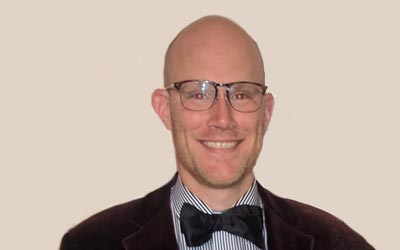Kevin Bell: Soldier, Humanitarian, Crime Fighter, Law Student

In 2008, Kevin Bell was deployed to Afghanistan where he led an infantry platoon under C Troop, 1/61 Cavalry Regiment, 4th Brigade Combat team, 101st Airborne Division. His troop took command of Combat Outpost Wilderness in Paktya Province, Afghanistan. During his deployment, Kevin experienced the grief of losing one of his soldiers, and learned to overcome the frustration of weekly conversations with tribal leaders and local villagers afraid to share critical information about the enemy. He led his platoon on combat missions, local government engagements, and humanitarian assistance projects, sometimes all in the same week.
Kevin said of the experience, “It changes what you value. It gives you a sense of what matters…you see how fleeting things are.”
After returning from deployment, Kevin earned his Master’s degree in Near Eastern Studies from Princeton University. After gaining proficiency in the Pashto language and graduating from Princeton, Kevin returned to Afghanistan to manage strategic communications grants for a small private company. On his previous tour as a soldier, he says “I had become close to my interpreter. I got the sense of his deep frustration with the non-stop violence. I wanted to go back and help.” He admitted that being in Afghanistan in a non-military role required him to radically change his mentality as there was “no way to arm and defend yourself, so you have to find other ways to stay sane while keeping safe.” While there the second time, Kevin co-founded a salsa dancing club in Kabul, but attendance waned as “it got rapidly more violent after the January 2014 attack on Lebanese Taverna.” In spite of the challenges, he stayed for a year and a half working on a variety of strategic communications projects, including helping local government officials respond to questions and concerns from their constituents through radio programming, cultural and sports events. These efforts provided critical access to information and government services for Afghan people living in areas isolated by violence.
Fast forward a decade. Kevin is now investigating international money laundering for the Financial Crimes Enforcement Network at the U.S. Department of the Treasury by day and attending Scalia Law School as a part-time student by night. He was accepted to both the University of Michigan Law School and the University of Pennsylvania Law School, as well as George Mason’s Scalia Law School. The decision was a ‘tough choice.’ But in the end, Kevin wanted to stay at Treasury and continue working while in school. Scalia Law School made that possible.
He describes his fellow part-time students as “a very impressive group. Very smart. Very talented.” Kevin said that it helps to study alongside people with professional experience prior to law school. “They bring real-world experience” to the classroom. He appreciates the fact that his colleagues at Treasury “know it’s hard [to balance work and law school] and this creates mentoring opportunities that I don’t think I would have otherwise.”
While holding down a full-time job and attending law school at the same time is “really difficult,” Kevin puts it all in perspective. He says that his experience in a war zone gave him a baseline for every other challenge he would encounter. He says, “it’s easy to get caught up in the stress of school and the competition for grades, but I try to remember how fortunate I am to have this opportunity at all, and that none of what I encounter in work or at school is really an emergency.”